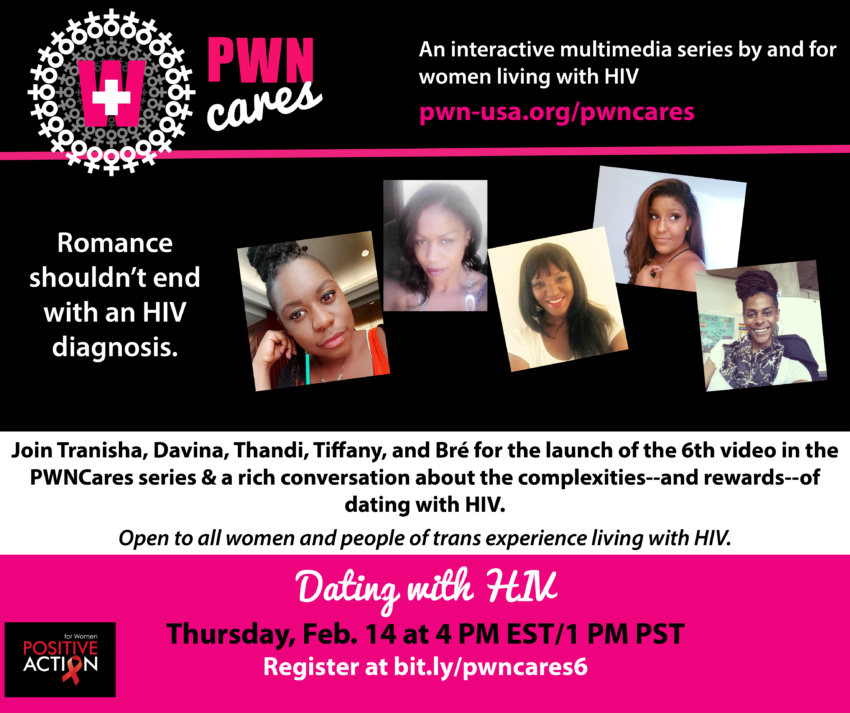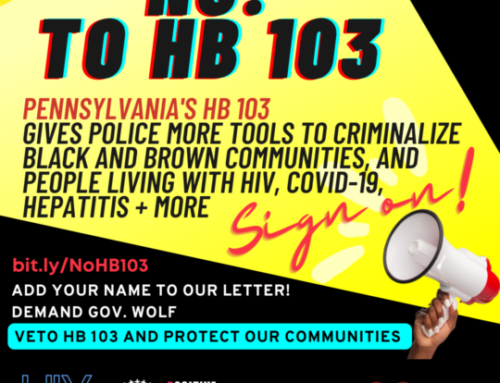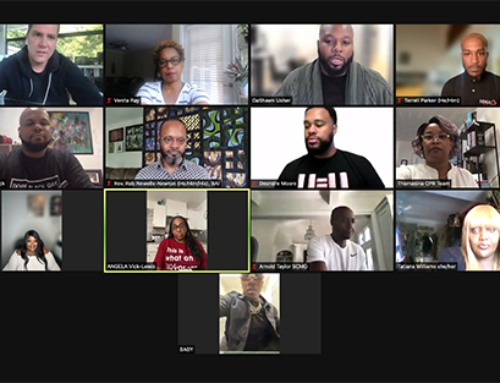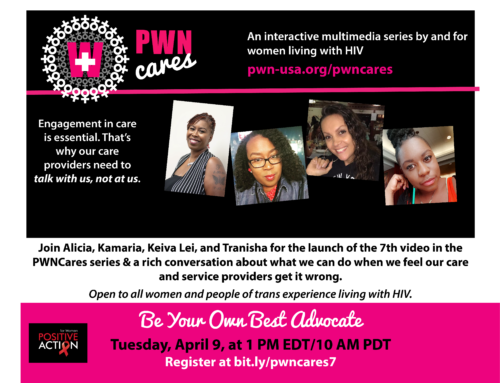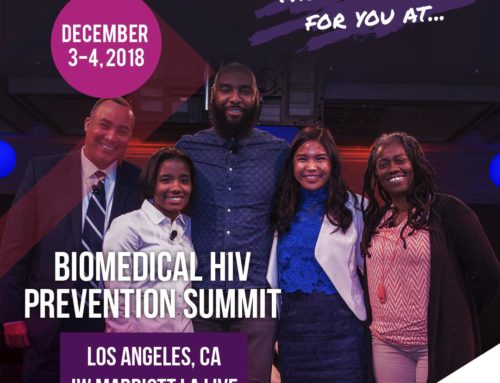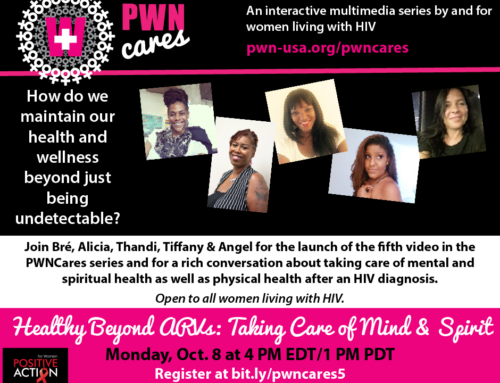**FOR IMMEDIATE RELEASE**
Contact: Jennie Smith-Camejo, jsmithcamejo(at)pwn-usa.org, 347.553.5174
Positive Women’s Network – USA Invites Women Living with HIV to an Honest Conversation About the Ups and Downs of Dating with HIV
The latest installment in the #PWNCares multimedia series will launch Feb. 14 with a virtual coffee table discussion open to all self-identified women and people of trans experience living with HIV
Jan. 29, 2019: Positive Women’s Network – USA (PWN-USA) is excited to announce that the sixth installment of our popular #PWNCares multimedia series by and for women living with HIV, Dating with HIV, will go live Thursday, February 14, right in time for Valentine’s Day. The release of the video, a conversation with five dynamic women living with HIV about the complexities, challenges, and highlights of romance after diagnosis, will be accompanied by a live coffee table chat with the women interviewed in the video.
What: Release of #PWNCares: Dating with HIV video and discussion guide, and virtual coffee table chat
When: Thurs., Feb. 14, at 4pm EST/1pm PST
Where: pwn-usa.org/pwncares/pwncares-6-dating-with-hiv/
Who: All self-identified women and people of trans experience living with HIV are invited to participate in the virtual coffee table. Service providers, social workers, counselors, and support group facilitators are encouraged to use and share the video, recording of the coffee table and/or discussion guide to facilitate conversations.
The five women interviewed in the video are of different ages and have a variety of different experiences: two are young women who were born with HIV; one is a woman of transgender experience; two identify as queer; two are now married. Their range of experiences provide breadth and nuance to the conversation and permit a robust conversation that spans age groups and length of time living with HIV. There is a common thread running throughout their narratives: Dating, romance, intimacy, and sex are still possible—and enjoyable—with a positive HIV status—and feeling comfortable and confident with oneself, including one’s status, is key to finding satisfying romantic relationships.
“Dating is complicated regardless of whether we’re living with HIV or not, and it’s really up to us to do the work we need to do internally to make sure we’re in a healthy space to date,” explained Bre Anne Rivera in the video.
“We hope that, regardless of how long they’ve been living with HIV or how publicly they disclose their status, women living with HIV who watch the video or participate in the virtual coffee table will both understand that they’re not alone and also that, despite the difficulties around disclosure, we deserve to be happy, and healthy relationships are possible after diagnosis,” said PWN-USA Deputy Director Venita Ray.
#PWNCares is an interactive multimedia series created by and for women living with HIV, with the support of ViiV Healthcare’s Positive Action for Women grant, with the goal of women who have been recently diagnosed or feel isolated and bringing them into supportive in-person and online communities. Research shows that health outcomes among people living with HIV are strongly impacted by social support—which, unfortunately, is not always easy to find for women and people of trans experience living with HIV, especially outside of major urban centers. As the rate of new diagnoses overall declines, funding for supportive services is also drying up—leaving newly diagnosed women and people of trans experience, who are disproportionately people of color with low incomes, with fewer places to turn. Three videos have already been released in the PWNCares series along with virtual coffee table chats. The videos come with discussion guides to facilitate their use in support groups, meetings and other events for women and people of trans experience living with HIV. Find the previously released videos and resources here.
PWN-USA seeks to bring those reached through the PWNCares series into our national network of thousands of women and people of trans experience living with HIV, which hosts six different workgroups with monthly calls on topics from communications to racial justice and healing to policy, a policy fellowship program, six statewide regional chapters and state leads in eight other states, and frequent opportunities to learn and hone skills through in-person and webinar trainings. As part of our newly approved strategic plan, PWN-USA will be increasing our focus on member engagement, including among those who find us through PWNCares, in an effort to make sure women and people of trans experience living with HIV have access to support, training and advocacy opportunities.



